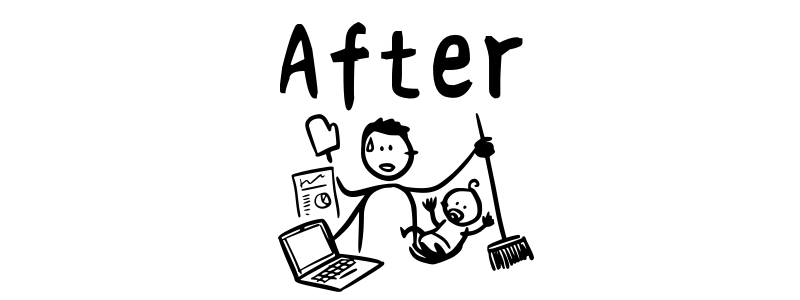Grammar Point:罷罢了 bàle is a final particle used at the end of a sentence. It has the sense of “that’s all” / “nothing more than” / “just”. It is often used to downplay, soften, or limit the statement, making it sound less strong or definitive. Structure Sentence + 罷罢了 bàle 我wǒ只zhǐ是shì想xiǎng幫忙bāngmáng罷了bàle我wǒ只zhǐ是shì想xiǎng帮忙bāngmáng罢了bàleI just wanted to help, that’s all. 他tā不bù高興gāoxìng罷了bàle,沒什麼méishénme大不了dàbùliǎo的de他tā不bù高兴gāoxìng罢了bàle,没什么méishénme大不了dàbùliǎo的deHe’s just unhappy,…
Author: tiffany
B2 L11 Vocabulary and Practice
There’s a small menu in the bottom right corner where you can choose how you want to review. Options include:
Sequence- 然後 ránhòu, 後來 hòulái and 以後 yǐhòu
然後后 ránhòu – then / and then / after that Used to connect actions in sequence, 然後后 ránhòu is very common in spoken Chinese and expresses a neutral, chronological order of events. 我wǒ先xiān洗澡xǐzǎo,然後ránhòu睡覺shuìjiào我wǒ先xiān洗澡xǐzǎo,然后ránhòu睡觉shuìjiàoI’ll shower first, then go to bed. 他tā吃chī完wán飯fàn,然後ránhòu去qù上班shàngbān他tā吃chī完wán饭fàn,然后ránhòu去qù上班shàngbānHe ate and then went to work. 昨天zuótiān我wǒ去qù超市chāoshì,然後ránhòu遇到yùdào我wǒ前男友qiánnányǒu昨天zuótiān我wǒ去qù超市chāoshì,然后ránhòu遇到yùdào我wǒ前男友qiánnányouYesterday I went to the supermarket and then ran…
Chinese Complement – 上 shàng
Grammar Point:In Chinese, verbs frequently combine with complements to indicate the result of an action. One common complement of result is 上 shàng. When used after a verb, 上 shàng no longer carries its original meaning of “up.” Instead, it indicates that the action has been successfully completed and that the resulting state has been achieved…
One time – 下 xià, 趟 tàng, 遍 biàn and 次 cì
Grammar Point:In Chinese, words like 下 xià、趟 tàng、遍 biàn、次 cì all appear after verbs and are often translated as “time” in English. However, they are not interchangeable. Each one highlights a different aspect of an action, such as frequency, completion, movement, or duration. 下 xià It emphasizes that an action is brief, light, or done casually, rather…
Passive sentence 被 bèi
Grammar Point:The passive sentence in Chinese is called 被字句 bèizìjù. It is used to construct passive structures and can introduce either the doer of the action or the action itself. In spoken Chinese, the verbs 叫 jiào and 讓让 ràng can be used as substitutes for 被 bèi. All of these sentences are considered passive sentences….
Condition 1 – 才 cái
Grammar Point:In Chinese, 才 cái can express the meaning of “only if” or “only when.” When it is used with 如果 rúguǒ, it shows that a certain condition must be met before the result in the main clause can happen. However, even if the condition is met, the result is not automatically guaranteed. It simply becomes possible. Structure…
Synonym of Other in Chinese
Grammar Point:These three words all mean “other,” but they’re used in different ways. Let’s look at 其他 qítā, 別的 béide, and 另外 lìngwài side by side. 其他 qítā – other / the rest Things or people besides the ones already mentioned. Often means “the remaining ones.” 其他qítā人rén都dōu走zǒu了le其他qítā人rén都dōu走zǒu了leThe other people have all left. 我wǒ還有háiyǒu其他qítā問題wèntí我wǒ还有háiyǒu其他qítā问题wèntíI still have other questions. 這zhè家jiā店diàn賣mài書shū, 也yě賣mài其他qítā東西dōngxī这zhè家jiā店diàn卖mài书shū,…
其他 qítā, 別的 béide and 另外 lìngwài
Grammar Point:These three words all mean “other,” but they’re used in different ways. Let’s look at 其他 qítā, 別的 béide, and 另外 lìngwài side by side. 其他 qítā – other / the rest Things or people besides the ones already mentioned. Often means “the remaining ones.” 其他qítā人rén都dōu走zǒu了le其他qítā人rén都dōu走zǒu了leThe other people have all left. 我wǒ還有háiyǒu其他qítā問題wèntí我wǒ还有háiyǒu其他qítā问题wèntíI still have other questions. 這zhè家jiā店diàn賣mài書shū, 也yě賣mài其他qítā東西dōngxī这zhè家jiā店diàn卖mài书shū,…
B2 L10 Vocabulary and Practice
There’s a small menu in the bottom right corner where you can choose how you want to review. Options include:






